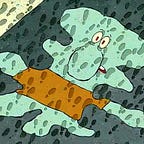What does it mean to be disabled in a capitalist society? What does it mean to survive in an economic system that requires the ability to work or produce? In a world that hinders or disqualifies my existence, where do I fit as a disabled person?
“Freedom is a constant struggle” that requires us to heal from and break the cycles of harm that tell us we shouldn’t exist.
A capitalist society forces disabled people to participate in specific ways in order to survive while simultaneously denying our existence or actively working to prevent it. What kind of society requires economic participation to access basic necessities for survival such as food, water, and shelter? An ableist society does.
But what exactly is ableism?
Merriam-Webster defines ableism as “discrimination or prejudice against individuals with disabilities.”
How do we define disability? This dictionary categorizes disability in two ways: medical and legal.
As a medical term, disability is “a physical, mental, cognitive, or developmental condition that impairs, interferes with, or limits a person’s ability to engage in certain tasks or actions or participate in typical daily activities and interactions.” Other definitions include “an impairment (as a chronic medical condition or injury) that prevents someone from engaging in gainful employment.”
The legal definition further asserts that disability is the “inability to pursue an occupation because of a physical or mental impairment; specifically: inability to engage in any substantial gainful activity because of a medically determinable physical or mental impairment that can be expected to result in death or to be of long continued or indefinite duration in accordance with the Social Security Act.”
From these definitions, we learn that disability is a condition that limits our access to “daily activities” and “gainful employment.” But how does this translate to ableism?
In the context of a capitalist economic system in which participation is required to access basic resources like food, shelter, and water, a disability can be a death sentence. But why does being disabled inherently limit someone’s ability to survive? Why is a disability something to overcome? Why does a person’s physical or mental condition limit, end, or even prevent their existence simply because it doesn’t conform to a capitalist economic framework of ability?
In order to understand the true extent of ableism within our current economic framework, we must consider what it means to be “able-bodied” and what it means to be “healthy.”
If disability limits our capacity to function within a capitalist framework, then being “able-bodied” gives us participatory access.
In following the logic of this framework, we accept that there is a specific standard or mode of being that enables full or partial participation in this system — we sometimes refer to this as health. But what does it mean to be healthy? What is health?
Health is “the condition of being sound in body, mind, or spirit; especially: freedom from physical disease or pain.” Other definitions include “a condition in which someone or something is thriving or doing well: WELL-BEING.”
By this definition, anytime we experience disease, pain, or a condition in which we are not thriving or doing well, we are unhealthy.
Do disabilities inherently disrupt a person’s well-being? In what ways do we consider how trauma and ableism affect a person’s health? What does it mean to be healthy if our mental, physical, and spiritual conditions are always fluctuating? Should we or can we even strive to be healthy?
While some disabilities can cause disease or pain, most disabilities do not inherently limit a person’s quality of life or ability to survive. Our ability to survive is only limited in the context of a capitalist framework that requires specific forms of participation and functionality.
What’s more, many physical and mental disabilities only disrupt “wellness” and result in pain or suffering if punitive consequences are attached to them. For example, being autistic is only “unhealthy” if it limits or prevents someone from laboring or producing goods and services in the context of a capitalist economy.
So why is our survival tied to our ability to labor in a specific way? What happens to us if we can’t labor or produce? Can we receive care and support without being punished for what we are unable to do?
A capitalist society requires disabled people to either conform to able-bodied modes of being or stop existing altogether. In this economic context, disabled people must conform to societal norms by taking medications, acquiring accommodations, and masking or “overcoming” disabilities in order to improve functionality and thereby increase chances of survival.
A capitalist society places limitations on our survival while actively blaming us for dysfunction if we fail to meet participatory expectations. A society that discriminates against people based on their ability to labor and produce is harmful for disabled people.
A capitalist economic framework actively harms disabled people. A society that forces us to function in specific ways in order to participate and survive is ableist.
If we want disabled people to exist, survive, and thrive, we cannot accept an ableist system — we must find alternative modes of existence.
